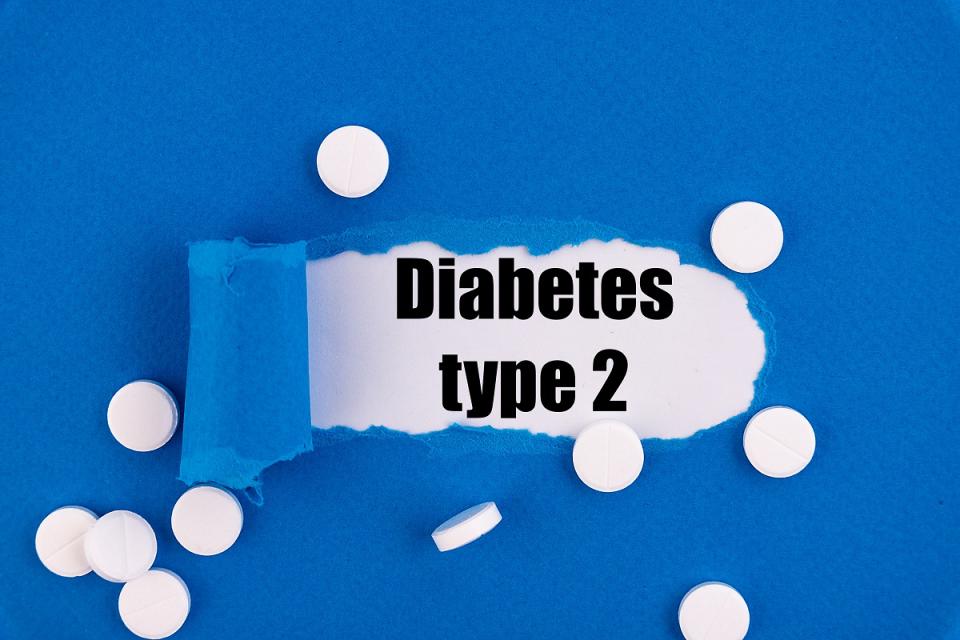World Diabetes Day: Here’s why you should have green tea if you have Type 2 Diabetes
We already know how drinking green tea regularly can be beneficial for maintaining a healthy heart, slowing down the growth of cancerous cells and reducing the extra flab.
But, does the hot beverage also have a medicinal advantage for those who are suffering from Type 2 Diabetes? Turns out, it has.
What does science say about this?
Type 2 diabetes - the most common form of diabetes - is caused by several factors, including lifestyle factors and genes. One is more likely to develop Type 2 diabetes, if the individual isn’t physically active and is overweight or obese. Extra weight sometimes causes insulin resistance and is common in people with Type 2 diabetes.

It has been proven that Green Tea helps to reduce weight and can also keep blood sugar under check. Even Sandra Arevalo, MPH, RDN, a certified diabetes educator and spokesperson for the American Association of Diabetes Educators, says that when you lose weight, you increase your insulin sensitivity and will have a lower blood sugar level.
Dr M Wasim Ghori, a Consultant Diabetologist and currently the Medical Director for a chain of Specialty Clinics in Mumbai, and Director for Healthcare at Indian Economic Trade Organisation (IETO) says, “Green Tea is a rich source of antioxidants and is loaded with several healthy components which help in regulating blood sugar levels. A growing body of research shows how drinking green tea not only helps people prevent the onset of diabetes but is also good if they are already diagnosed with diabetes. Studies have shown that those drinking green tea were up to 33% less likely to develop Type 2 form of diabetes.”
Shilpa Medicare recently introduced the world’s first ready to drink Green T Films. which contains natural Green Tea extracts. Unlike tea bags, the Green T Film (https://shilpaotc.com) completely dissolves in water with no loss of nutrients, aroma, essential oils and flavour. Sundeip Bhatia, Business Head India, Shilpa Medicare says, “Researchers have found that drinking 4 cups per day is linked to weight loss and lower blood pressure. The catechins, a type of antioxidants, present in Green Tea help to reduce the effects of insulin resistance by decreasing the digestion and absorption of carbohydrates.”

Why Green Tea?
All types of tea, except herbal tea, are brewed from the dried leaves of the Camellia sinensis bush.The level of oxidation of the leaves determines the type of tea.Green tea is made from unoxidised leaves and is one of the less processed types of tea. It therefore contains the most antioxidants and beneficial polyphenols.

Polyphenols have anti-diabetic properties.They help to reduce oxidative stress and widens the arteries, decreasing blood pressure, prevents clotting and reduces cholesterol. All these activities reduce the risk of heart disease which is elevated in people with diabetes. Polyphenols also help in cell restoration and saves the body from cell damage.
Sundeip says, “Stress can be a major barrier to manage glucose control. Therefore, when you’re under physical stress, your blood sugar can also increase. Green Tea contains the amino acid, L-theanine which helps to calm down the mind and body thereby relieving stress.”
Besides, Green Tea also helps your body to maximise the functions of the pancreas which is important to produce insulin. Some studies also suggest that Green Tea protects the pancreatic beta cells from damages.
Dr Ghori points out, “Green Tea contains certain types of flavonoid called epigallocatechin gallate (EGCG catechins) which help in burning body fat and increases the fat oxidation. Excess fat in the body often leads to diabetes. EGCG catechins also improve tolerance against glucose, thereby protecting the individual from developing Type 1 diabetes as well as Type 2 diabetes.”
Green Tea is also widely known for its ability to stimulate metabolism as well as improve your immune system which means that there is more energy and blood for use by the brain.

How you should take your Green Tea
There is hardly any negative impact of Green Tea on your body. But one should drink it the right way and in the right quantity.
People who have diabetes need to consume at least four cups of Green Tea a day. It should be consumed without adding sugar, milk or cream. The preferable time to take this beverage is in the morning.
Never sweeten your Green Tea. Use alternative sweeteners as a last resort. Stevia being the preferred variety. Green Tea does contain a small amount of caffeine, around 25 mg, so be sure to log your reaction from drinking it as it can affect blood pressure. The best way to monitor how you respond to the amount of caffeine in Green Tea is to check your blood sugar before drinking the tea and then one to two hours afterward. If you’re still in your target range before and after, you haven’t hit your limit. If you are sensitive to caffeine, herbal teas can be a great substitute. They don’t contain caffeine and are also rich in flavour.
You should avoid bagged tea as well, since the potency and quality are lower than loose tea. Green T films are not only a sustainable alternative, but they also ensure negligible loss of therapeutic benefit.
Lastly, please remember that it is not enough to just add Green Tea in your daily routine; at the same time maintaining a healthy lifestyle and taking medicines on time is also essential to reduce your blood sugar levels.

 Yahoo Finance
Yahoo Finance 